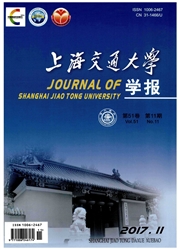

 中文摘要:
中文摘要:
针对不同方式通勤出行者在出行时间上的差异性,从通勤出行方式对通勤出行时间的影响出发,将通勤出行方式选择和出行时间选择纳入同一模型系统,建立由离散选择模型和线性回归模型组成的离散-连续模型,对通勤出行方式和出行时间选择及其相互影响模式进行了深入分析.研究表明,通勤出行方式对出行时间选择有显著影响,通勤者年龄、性别及其家庭成员结构、工作活动属性及通勤途中的非工作活动安排等都是出行方式和出行时间选择的重要影响因素.本研究对准确预测通勤出行选择行为及其对交通管理工作的影响有重要意义.
 英文摘要:
英文摘要:
The selection of trip timing and mode are two critical decisions of each commuters' daily travelling behavior. Since there are significant differences in observed home-work departure time distributions by different mode of commute, this paper provides an integrated treatment of commute mode and time of day explicitly considering the influence of mode selection on departure time selection. In this paper the joint model of mode selection and home-work trip timing is estimated using a discrete-continuous econometric model, which allows for unrestricted correlation between the unobserved factors influencing the two decisions. Strong correlations between unobserved factors influencing mode selection and trip timing are found. Furthermore the estimated model proves that age, gender, household member structure, activity and travel characteristics of the commuter are all important influencing factors for the two decisions. These findings have important implications for commuter travel behavior analysis and transportation managemnet.
 同期刊论文项目
同期刊论文项目
 同项目期刊论文
同项目期刊论文
 期刊信息
期刊信息
